Every year on the 5th of November, Roma in Europe celebrate the International Romani Language Day. The Romani language, spoken by millions of Roma people across Europe, is not just a means of communication; it embodies a rich cultural heritage. For EWC trainer Ramiza Sakip it is a large part of her identity.
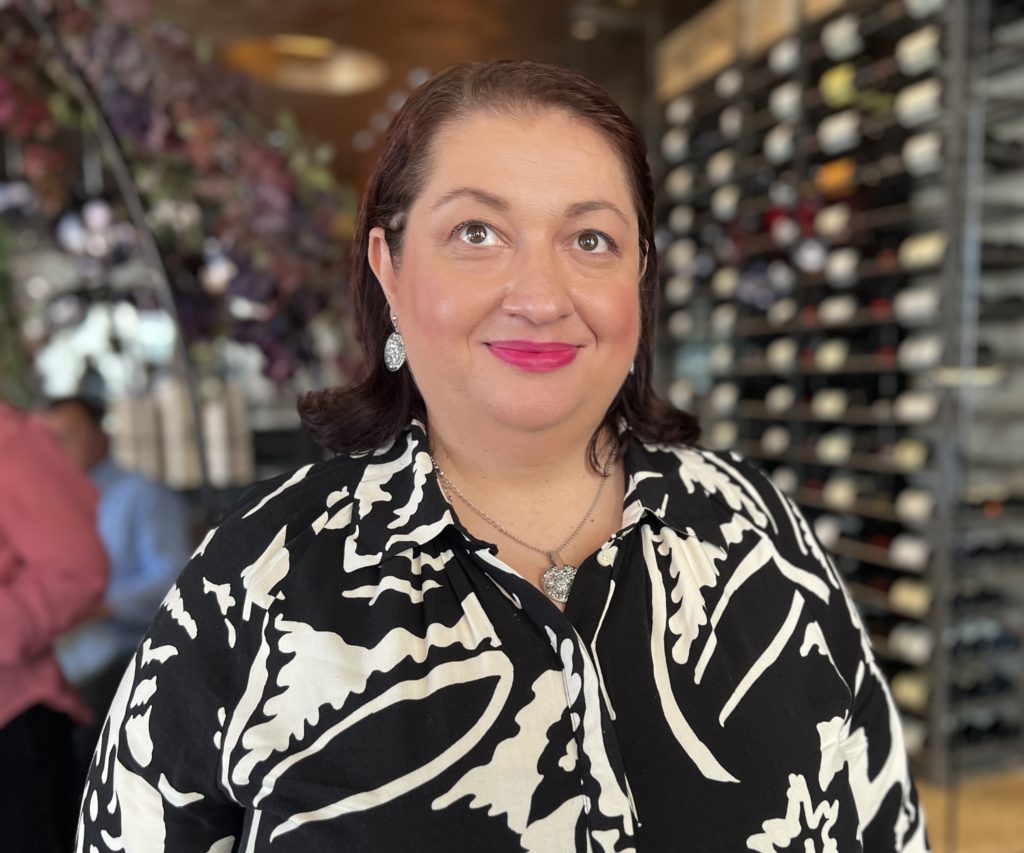
By Veslemøy Maria Svartdal
“Our language is one of the oldest languages in the Indo-European language group. It comes from Sanskrit and is based on different dialects that we Roma can understand no matter where we live,” explains Ramiza Sakip.
Ramiza is a Roma activist and freelance trainer, having worked for EWC as a trainer in education for democratic competences and inclusion since 2022. Her identity is the basis for her work. Since 1995, she has been active in the Roma community, starting by contributing to the establishment of several Roma NGOs in Macedonia, before becoming advisor for Education in Skopje and trainer and facilitator of the European Training Program for Roma Mediators.
Her work has taken her across Europe. Working for EWC, she has helped train school principals, teachers and representatives from local authorities from Romania, Slovakia and Bulgaria, teaching them about Roma history and culture, as well as giving them practical information about how to include and interact with members of the Roma community.
“Romani language is the main identity element in our heritage,” Ramiza says. “Roma people have kept it alive ever since they came from India to Europe in the 12th century.”
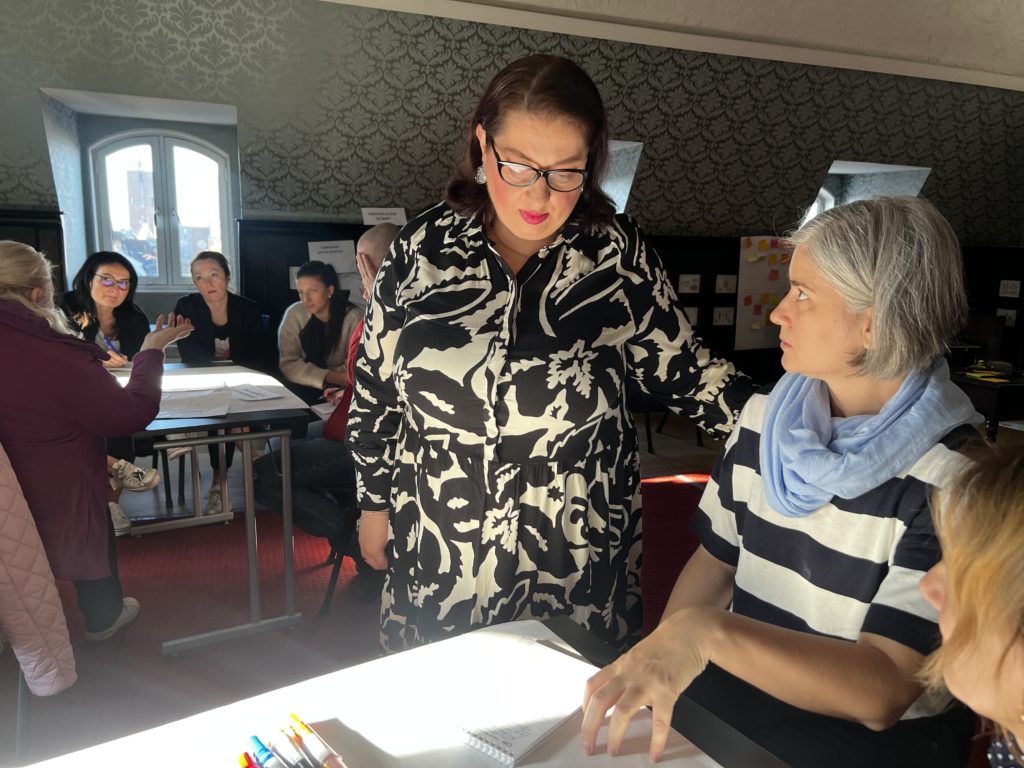
By the time the Roma people reached Europe, they had developed a distinct language that incorporated elements from the languages spoken in the regions they passed through, including Persian, Greek, Turkish, and various Slavic languages. This historical journey has resulted in the emergence of numerous dialects, each reflecting the unique experiences of the communities that speak them.
For the Roma, their language plays a crucial role in preserving their culture. Many Romani songs, stories, and proverbs are passed down through generations, often conveying moral lessons, history, and shared experiences.
Ramiza grew up in Skopje in a middle-class family when North-Macedonia was still a part of Yugoslavia. Her parents valued education highly, and always taught her to be proud of her Roma roots. Her father was a renowned musician, and her mother ran a local supermarket. They wanted Ramiza to study hard and do well in school.
Romani is Ramiza’s native language but as she started primary school, she too discovered the prejudice and discrimination that the Roma people have struggled with for centuries.
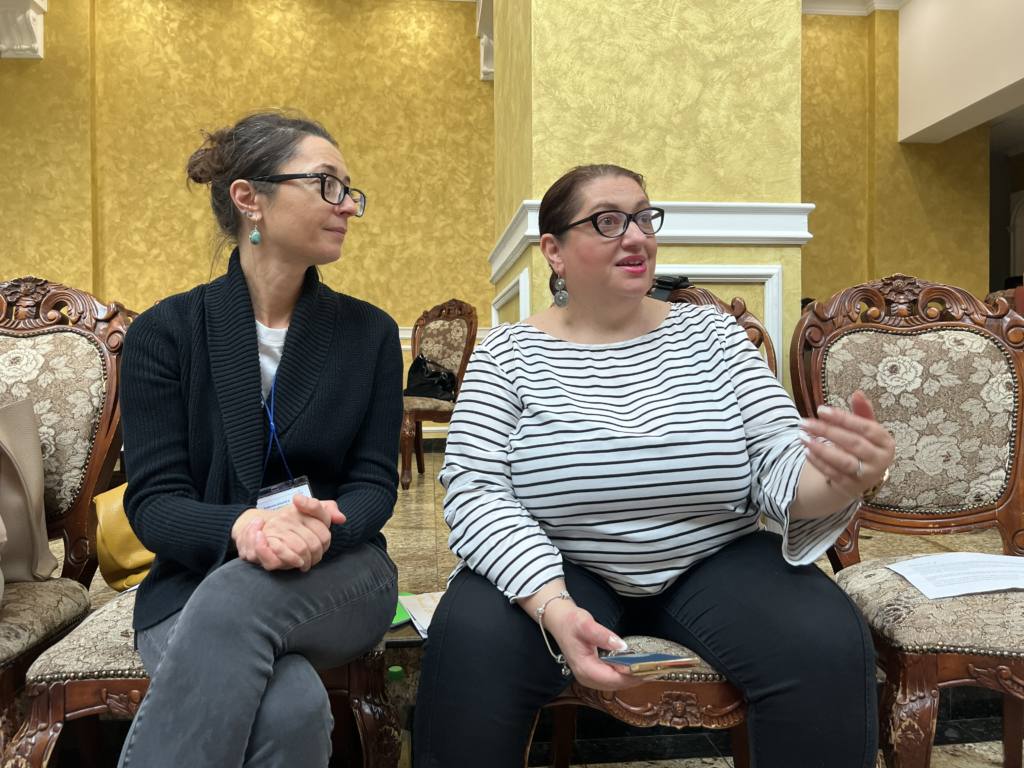
“Macedonian is not my mother language, but I had to learn it better than Macedonian-speaking children to not make a mistake. If I made a mistake, the teachers would laugh at me,” Ramiza recalls from her school days.
“I was very motivated to become a teacher, to not repeat the same mistakes that teachers made when I went to school. When I was a young child, you cannot imagine the terror I felt. They did not want me in the school. I am lighter skinned than many others with Roma heritage, but with my name ‘Ramiza’ everyone identified me as a Roma immediately,” she continues.
Coming from a more well-to-do family than many others in her country at that time, Ramiza defied stereotypes when her teachers came to visit her family in their apartment.
“It was a cultural shock for them. They said: ‘You are Roma, but you live better than me!’ The day after the news about my apartment had spread to the entire school. But then they said: ‘Oh you are not like the other Roma,” and that too is a form of discrimination,’ Ramiza reflects.
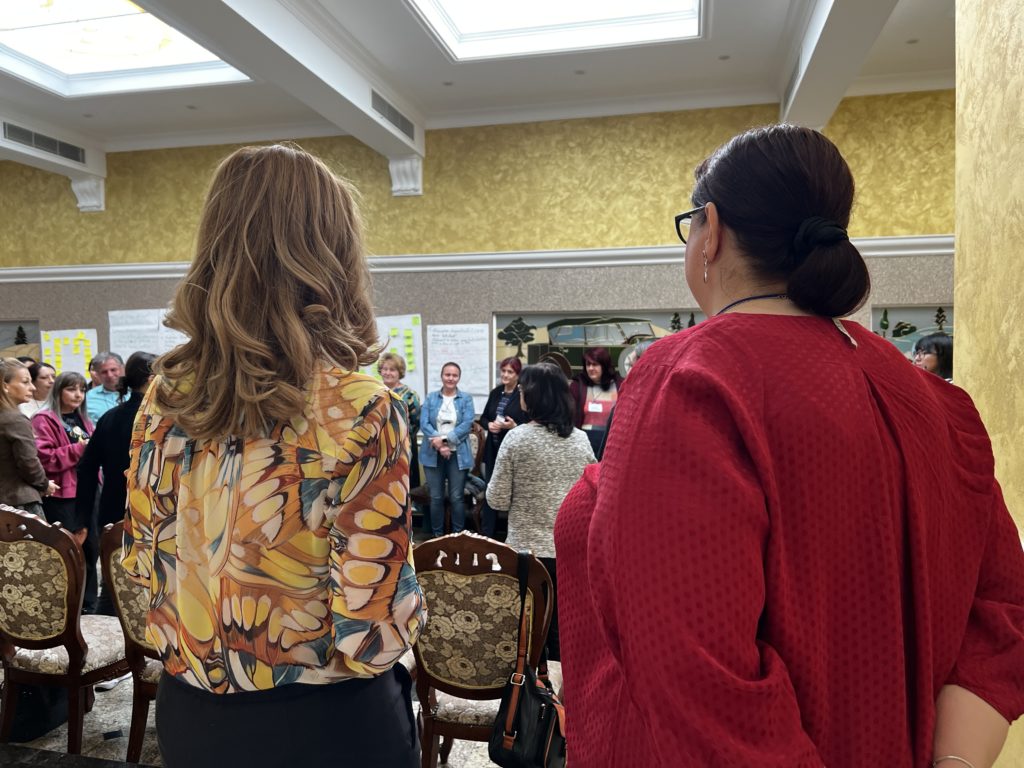
The discrimination against Roma people can be traced back centuries, with roots in medieval Europe. Historically, Roma were often stereotyped as lazy, untrustworthy, and associated with criminality or poverty. Such negative perceptions were reinforced by laws that restricted their movement and rights, leading to widespread ostracization.
The legacy of these prejudices continues to influence societal attitudes today. Many Romani people face systemic discrimination that affects their access to education, employment, healthcare, and housing.
“Today the Romani language in Romania and the rest of Europe is still persevered but there is also dangerous that if we don’t keep our language, we will lose it because of the different polices toward Roma people,” says Ramiza.
“Today in my country in North Macedonia our Roma language is still kept because in the elementary schools where Roma children are visiting, they have classes on educating the Roma language, history and culture but this kind of example you can’t find in other countries in Europe,” she continues.
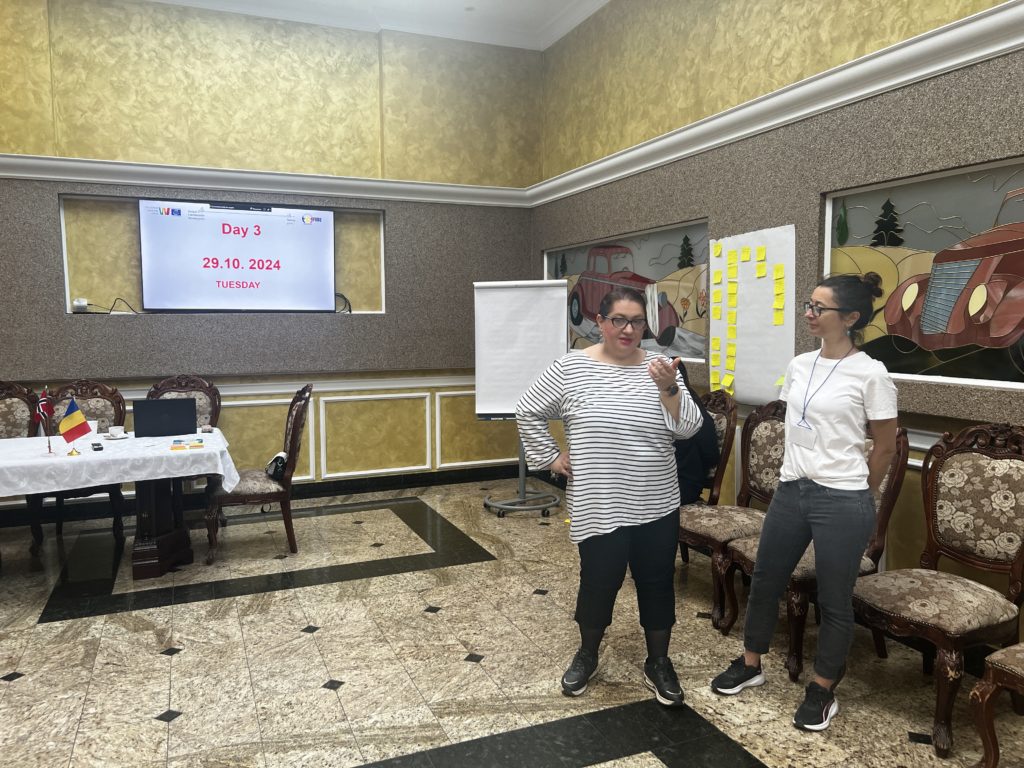
In recent years, there has been a growing movement to revitalize the Romani language. Various organizations and cultural groups are working to promote literacy and education in Romani, encouraging younger generations to learn and use their ancestral language. Recognizing the importance of protecting and promoting this language, the Council of Europe has implemented several initiatives aimed at supporting the linguistic rights of Romani speakers.
EWC work for inclusion of the Roma minority goes back years. In working with inclusion and creating a safe school environment, based on a democratic culture where everyone is given equal opportunities regardless of their cultural or socio-economic background, the Roma people are given special attention.
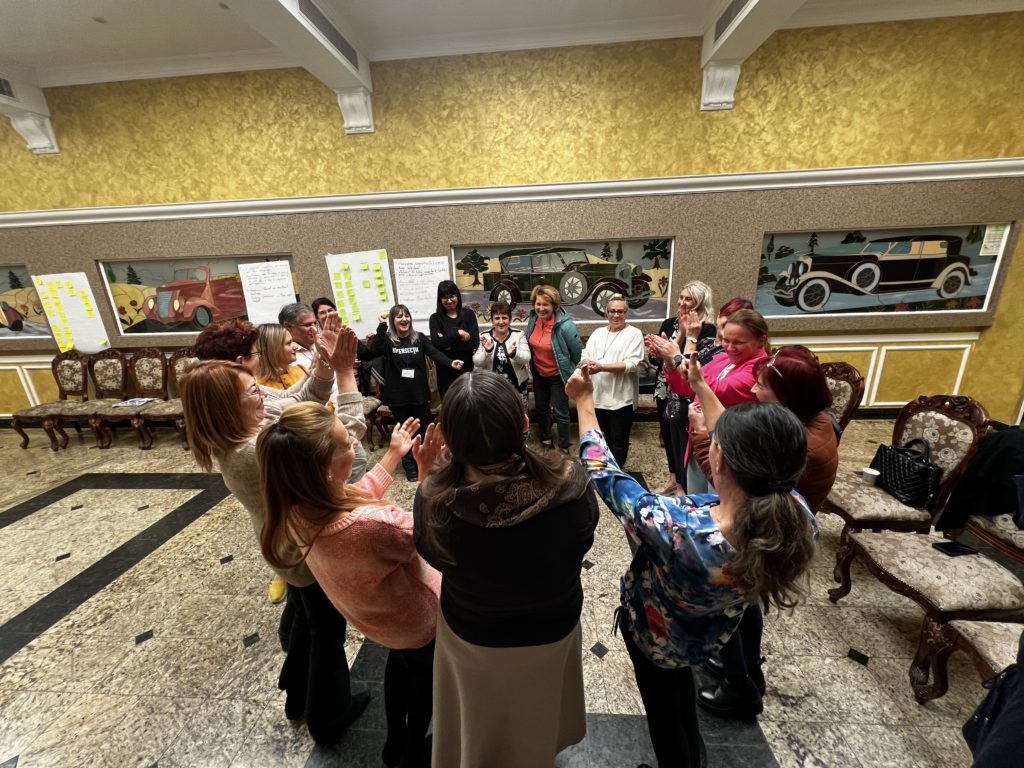
In Romania EWC has travelled to the counties of Satu Mare, Calarasi and Suaceava, where many schools are located in poor, marginalized communities, and the percentage of pupils with Roma heritage is high. There teachers, school administration and local administration learned about the whole-school approach, which involves all members of the school, including management, staff, students, parents, and the broader community.
Employing the whole-school approach, educators can incorporate democratic values and human rights principles into teaching, learning, and school governance. The aim is to increase the quality of education in the country, particularly addressing the situation of Roma children and youth.

Similar projects have taken place in Slovakia which is struggling with growing disparities between and within regions, and where the least developed districts having a high share of Roma population. In Greece, EWC has among other things, focused on creating schools free from discrimination, school violence and bullying.
When engaging with Roma people, Ramiza can talk with them in their own language. This goes hand in hand with the EWC principle to never discuss Roma without Roma voices present: “Nothing about Roma without Roma.”
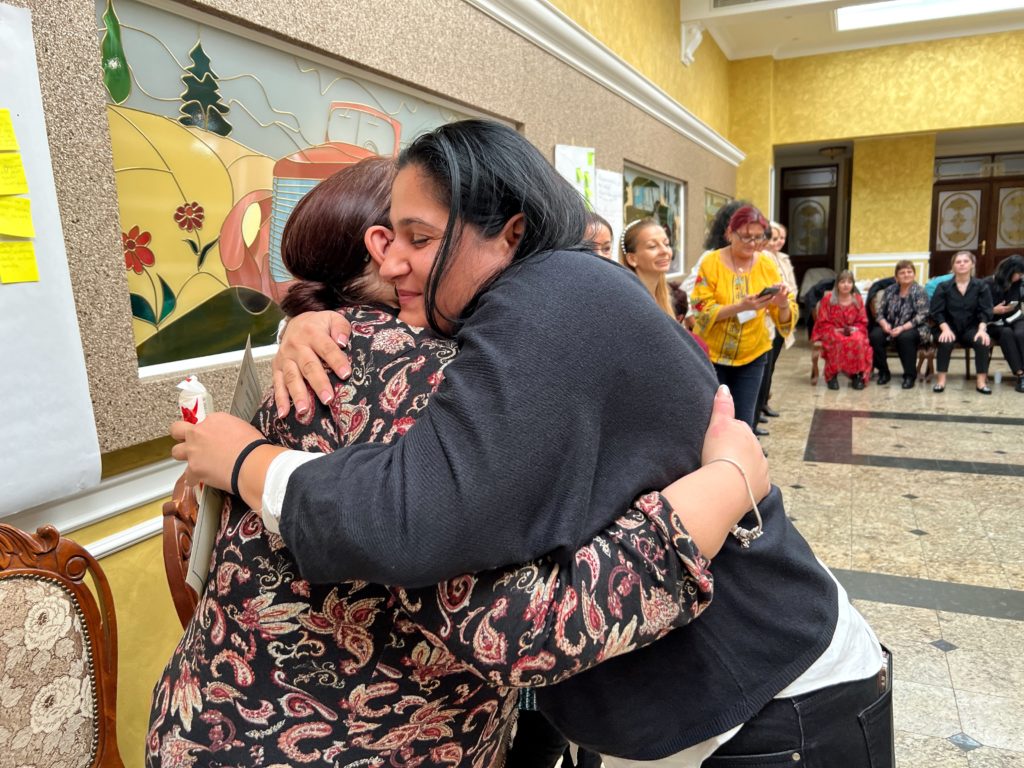
Ramiza has spent her 25-year long career advocating for her people and her culture. By using herself as an example of what a Roma woman can do, she is still breaking stereotypes. She talks excitedly and passionately about her work:
“The best thing about my profession is that I get to train many different groups – young people, women, teachers – on the topics for Roma history, culture and language, and how to work with the Roma communities. I think that this is my mission in life, to share my knowledge, skills and competences to others, and present them our Roma history and culture through my experiences.”